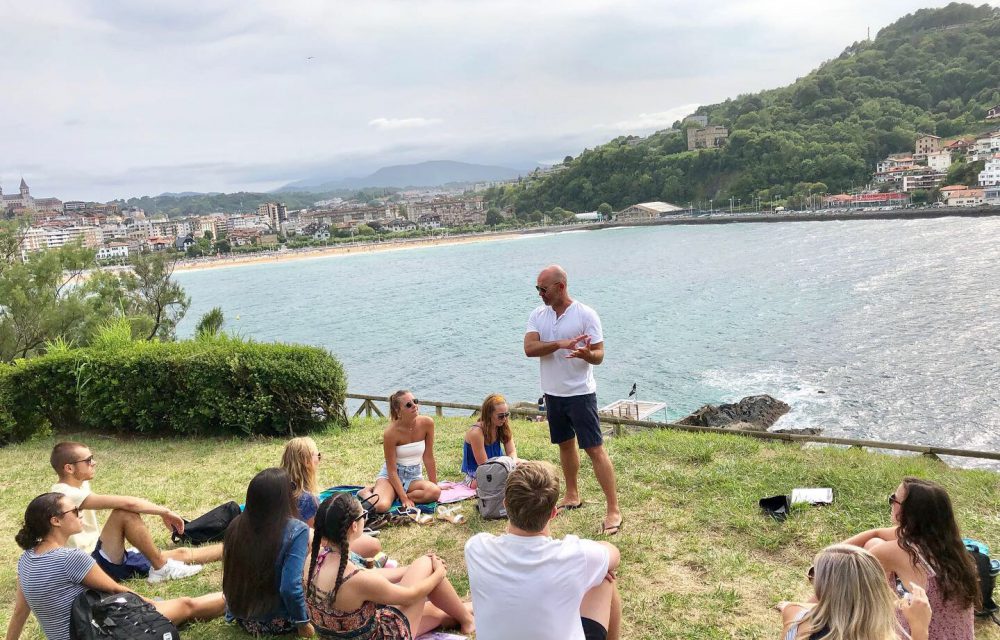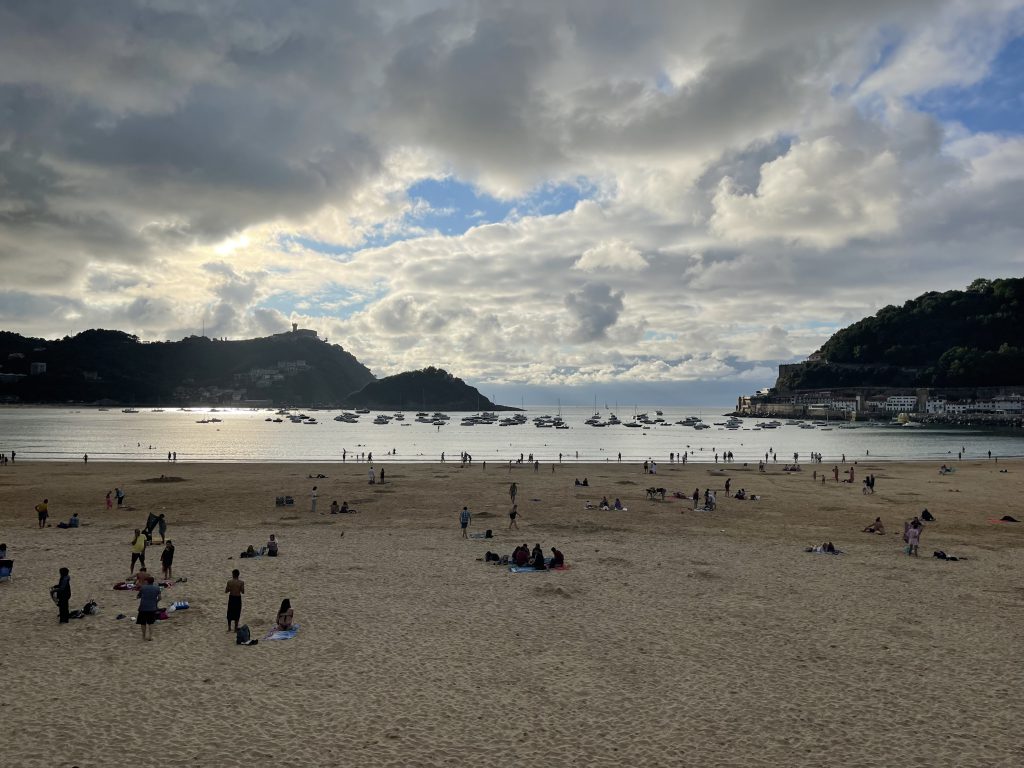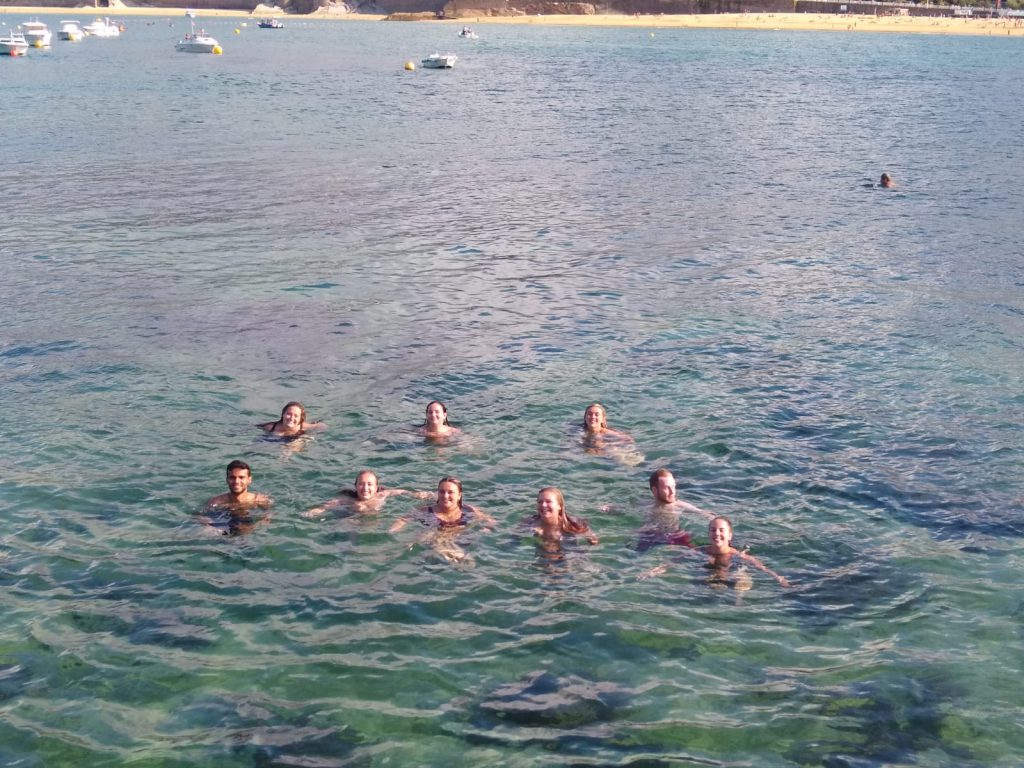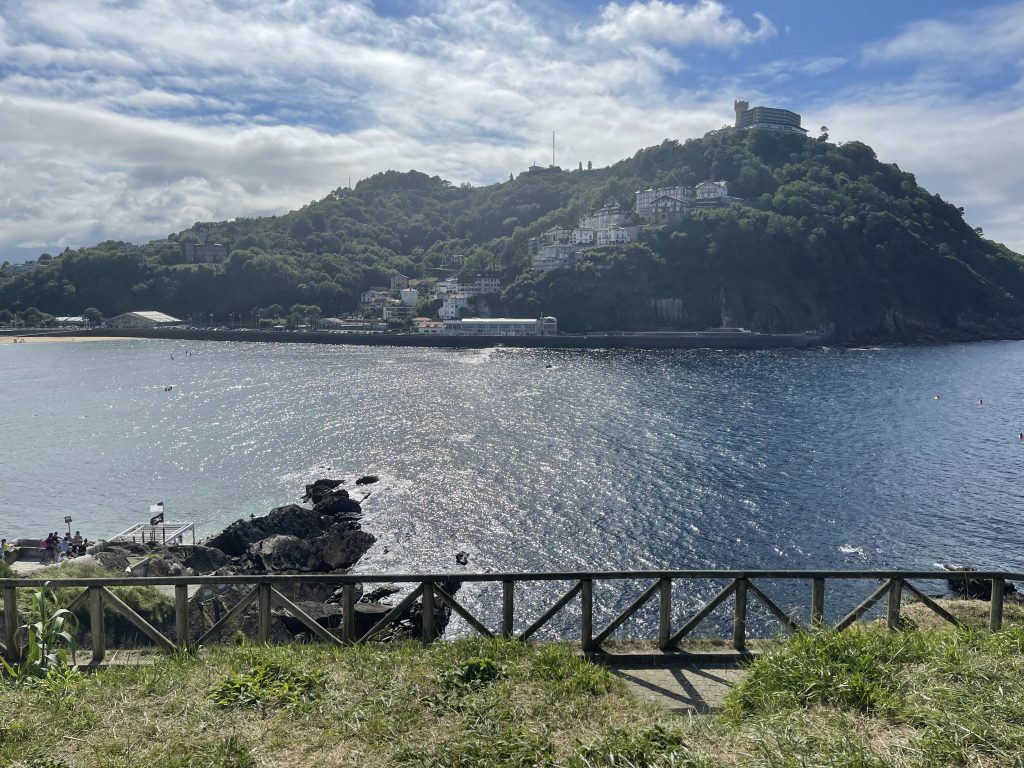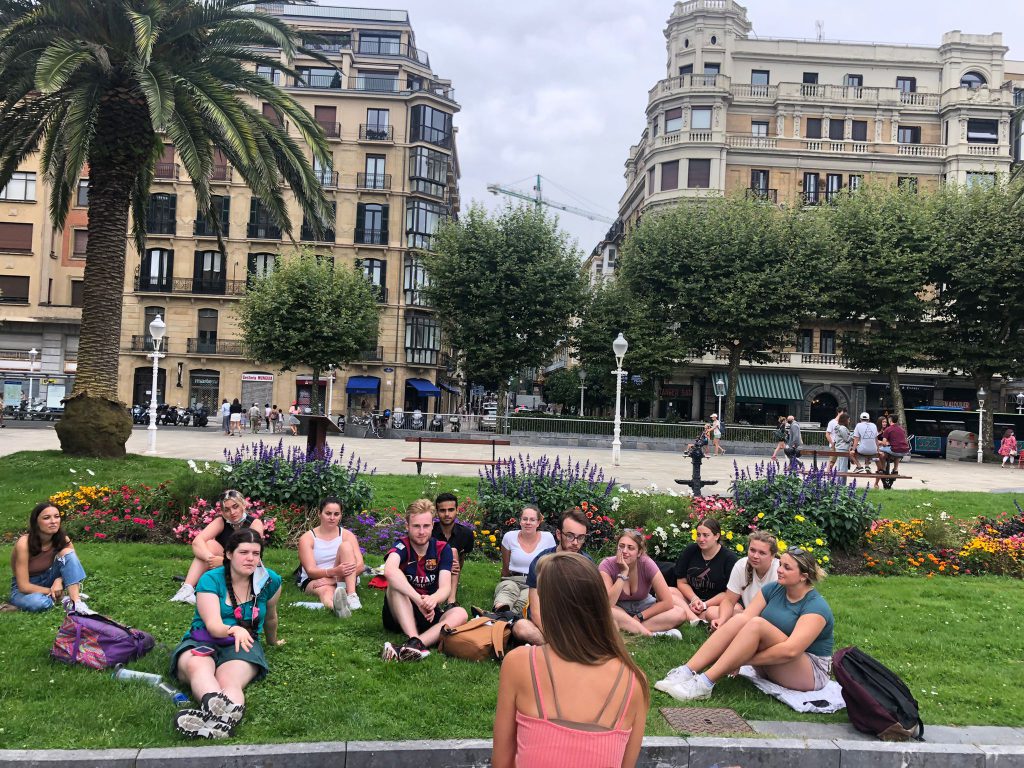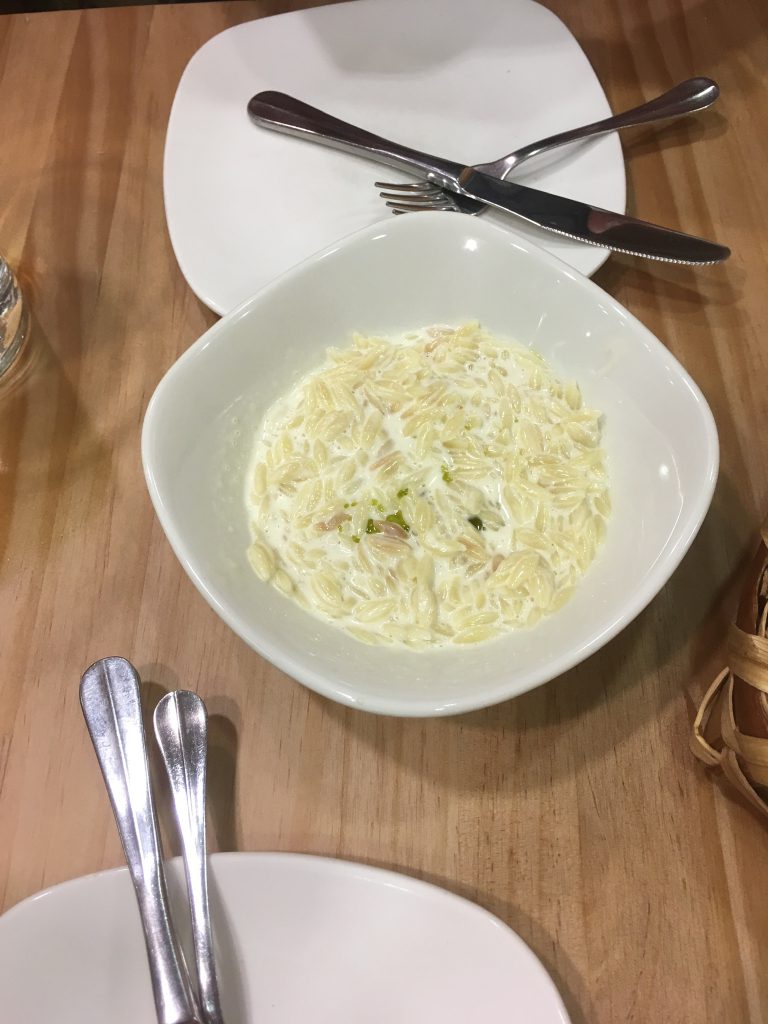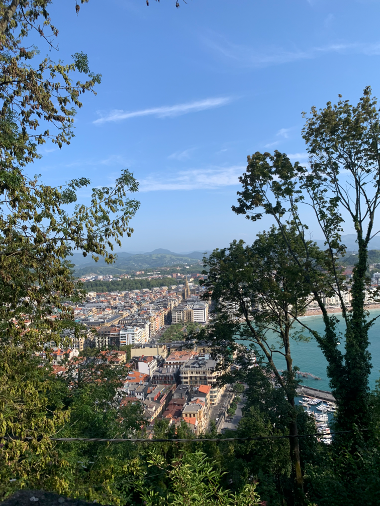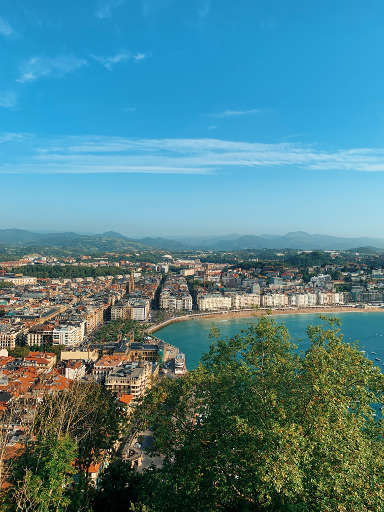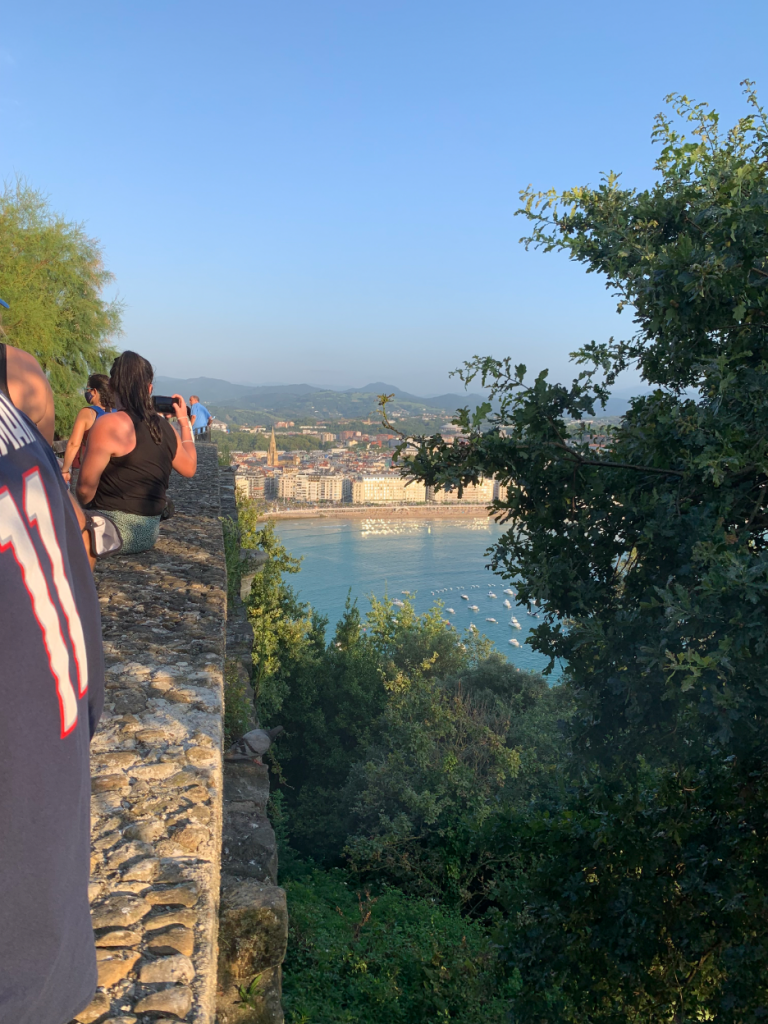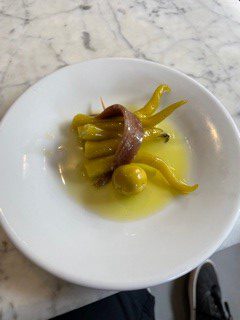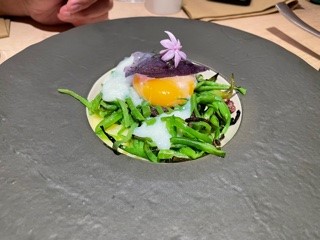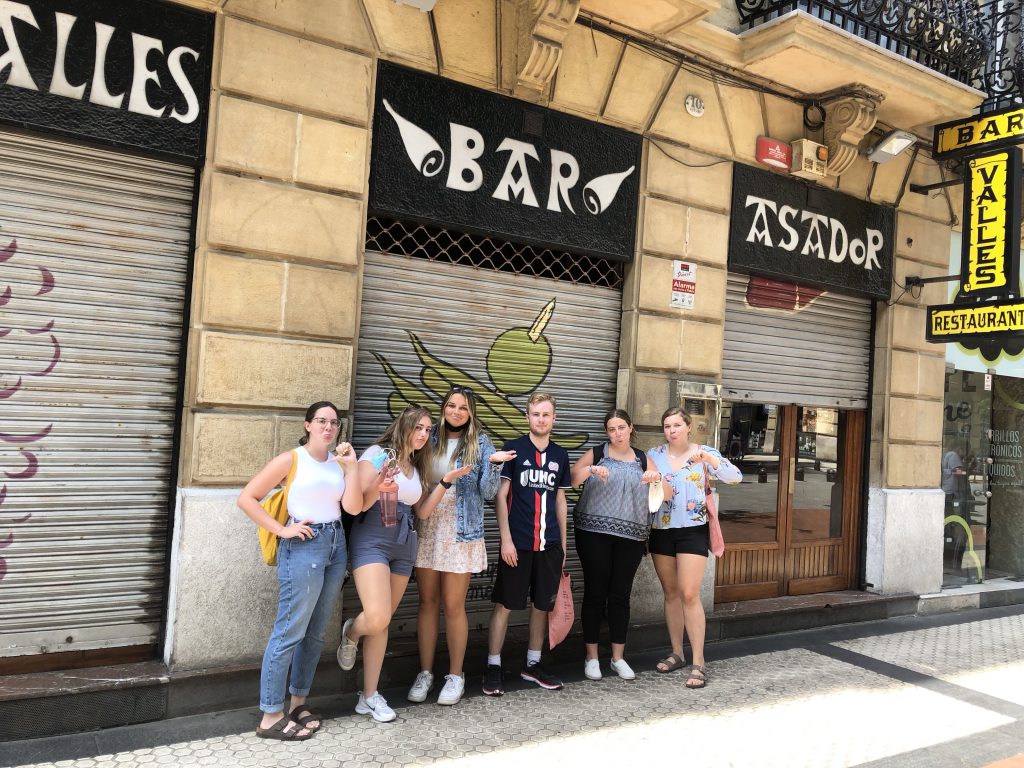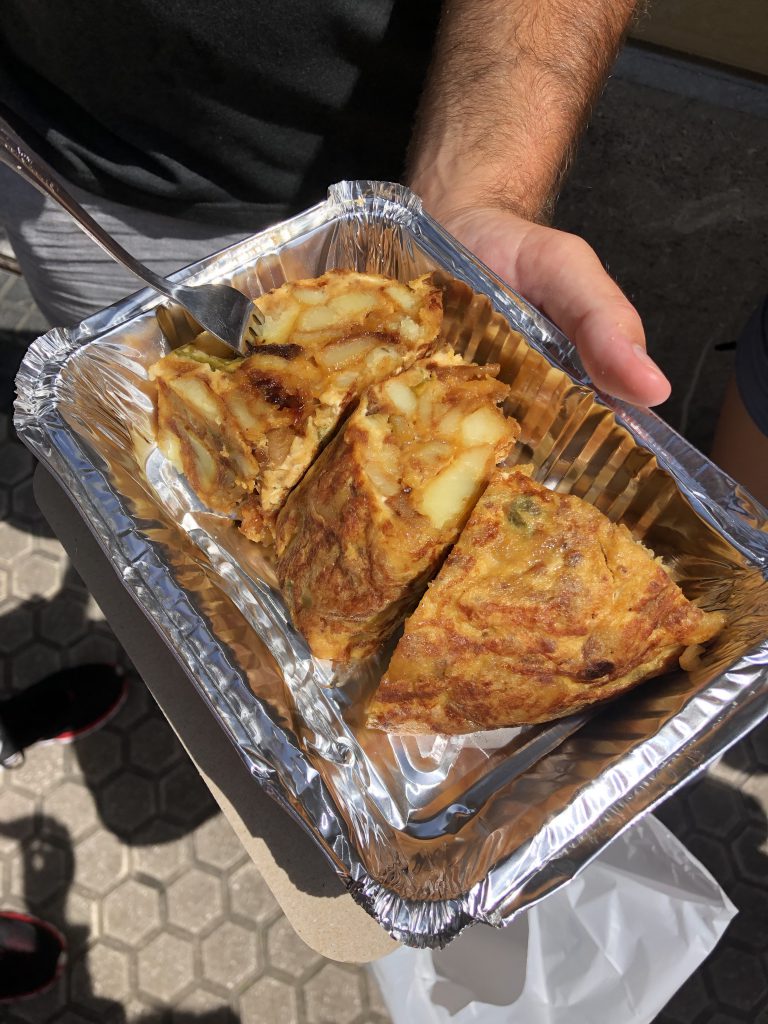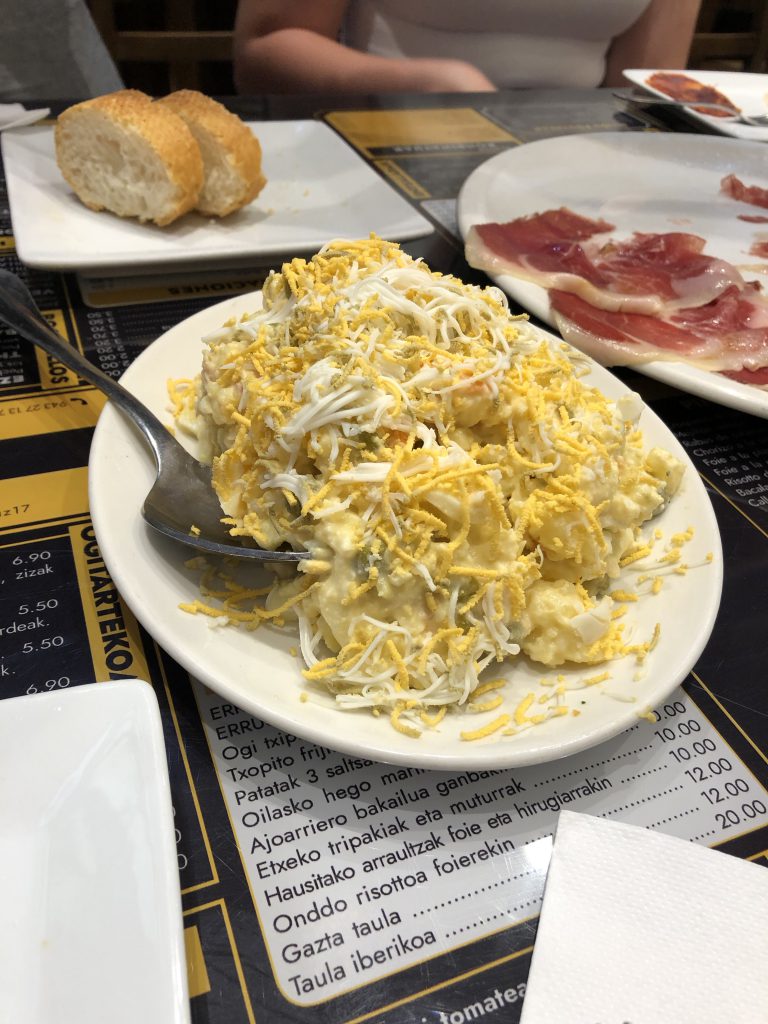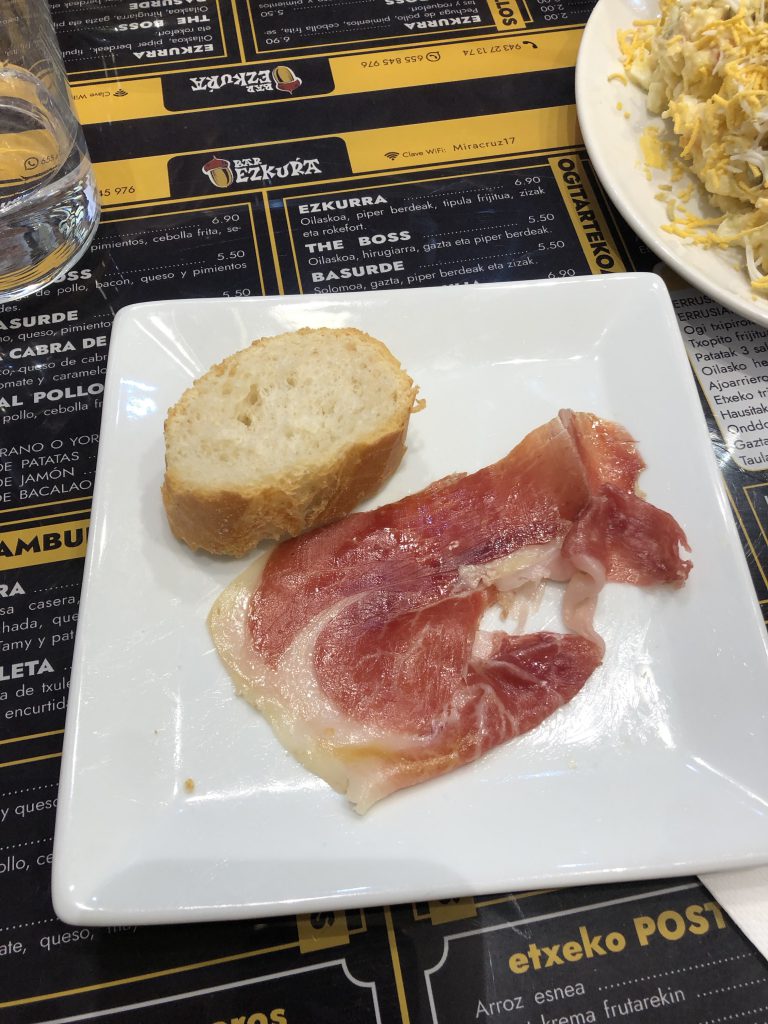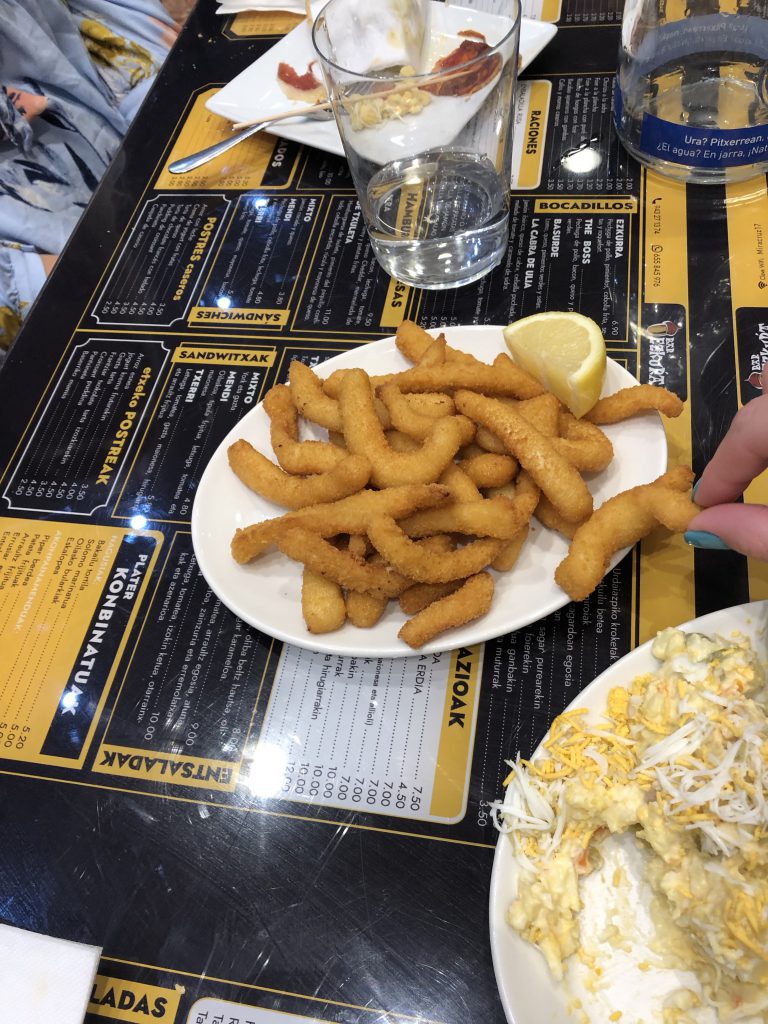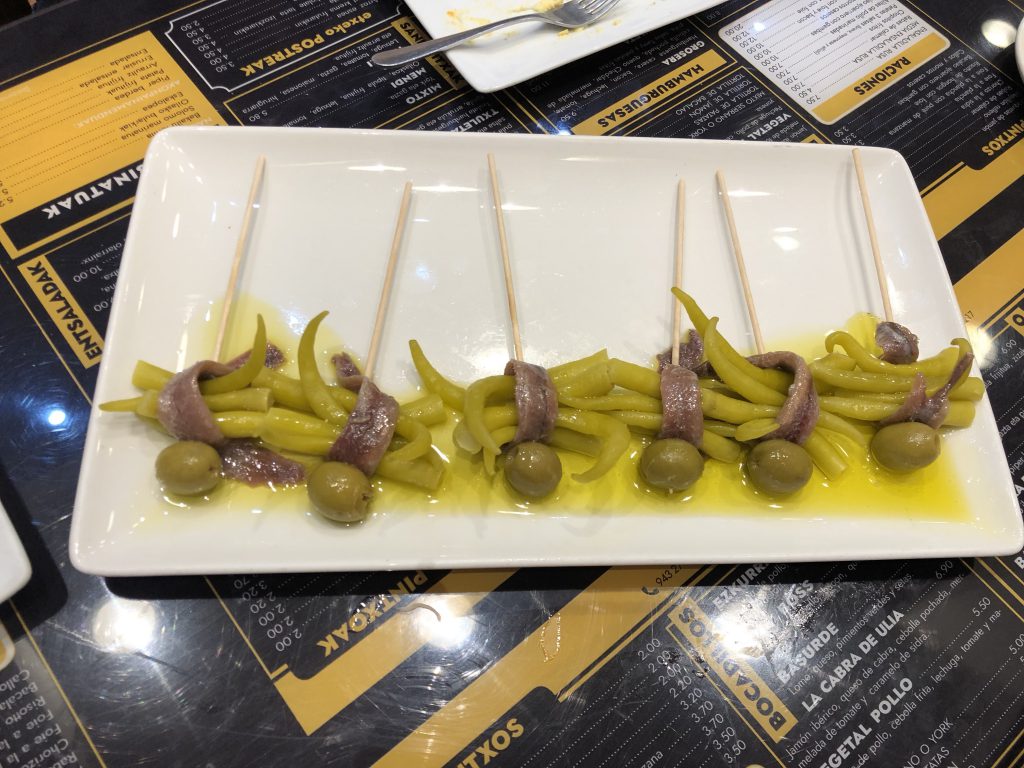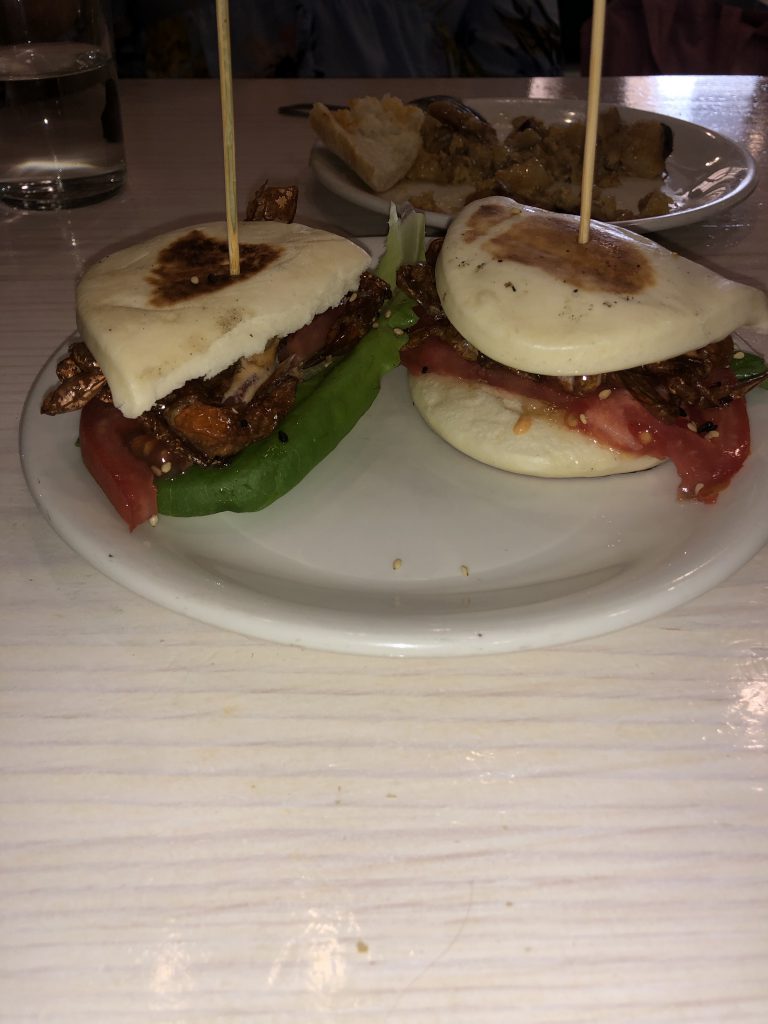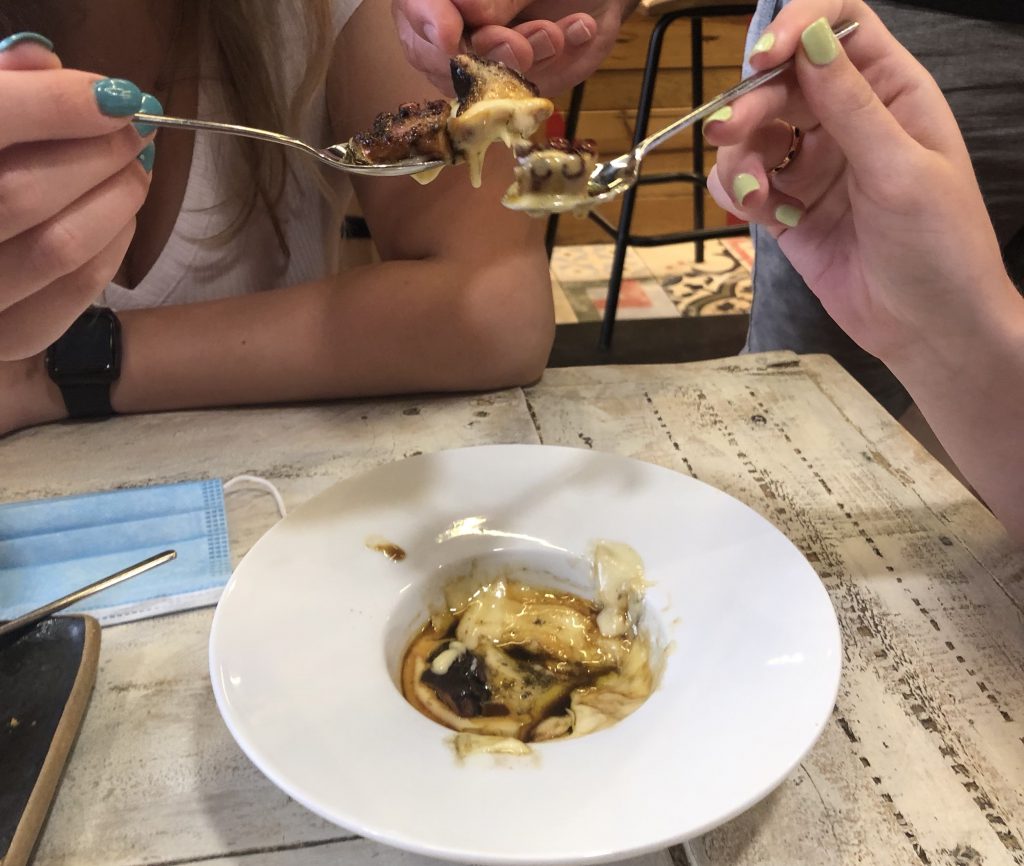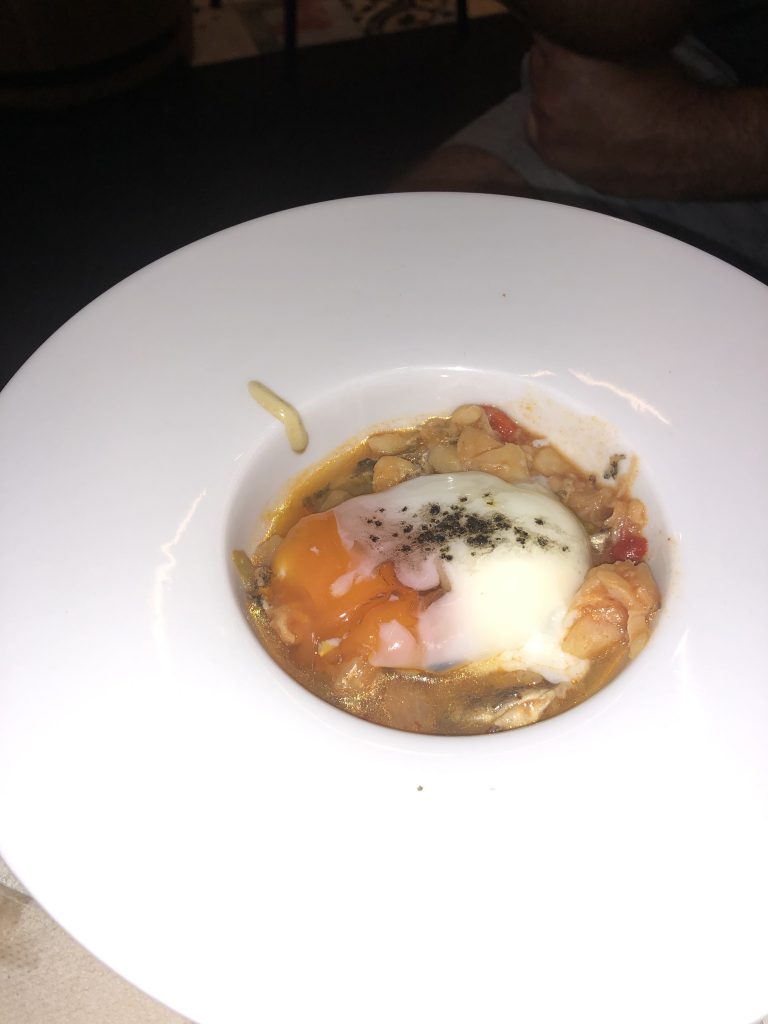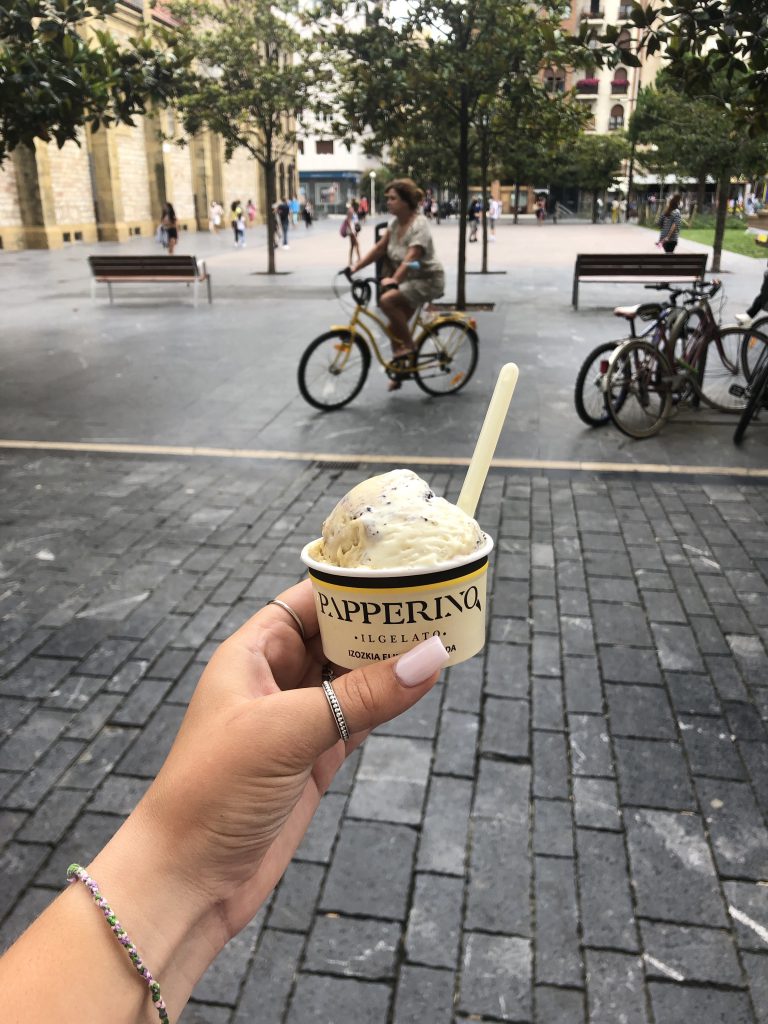On one of our last days in San Sebastian our group ventured to one of the nearby towns to watch a pelota match. Although before going on the trip none of us had ever heard of this amazing game, we were quickly enthralled in what we thought was one of the most impressive sports we had ever seen.
Pelota is very similar to squash. One player bounces the ball off the wall. Then, the next player has the ability to either play the ball off the bounce or to hit it right out of the air. The ball must then make it back to the wall or the other player will get a point. Matches are played to 30 or 40 points. The biggest difference of Basque pelota and squash is that instead of using a racket, or your hand to hit the ball, a giant curved stick attached to your hand know as a cesta is used. The cesta is designed to catch and throw the pelota ball in one continuous moment.
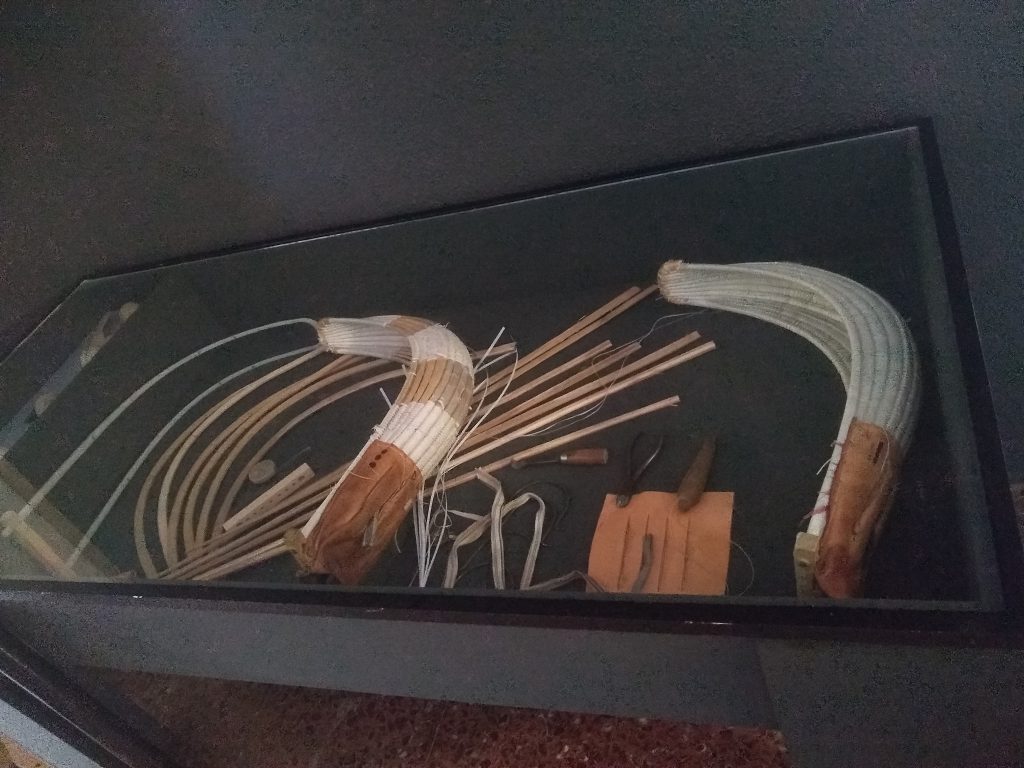
Before watching the game, we were all given the opportunity to try to practice a little bit. We quickly learned that the task of catching and and releasing the ball in one solid motion was no easy feat. Personally, I had a difficult enough time even serving the ball straight.
I believe that being given the opportunity to try to play ourselves gave us a greater appreciation for just how impressive the athletic feats taking place in front of us truly were. I was happy if I was able to serve the ball and have it travel straight and hit the wall 10 feet in front of me. Meanwhile the pelota players would make diving catches going backward and then manage to twist and throw the ball back to the wall 50 meters away from them in one continuous motion.
As a group we were lucky enough to be taught how to play pelota by one of the club’s athletes. He went right from teaching us how to play to playing in the doubles match we got to watch. Having a connection to one of the players gave us all a rooting interest in the match that we may not have had otherwise. The match itself was an extremely close affair fraught with all the drama and moment shifts of any of the best basketball or football games.
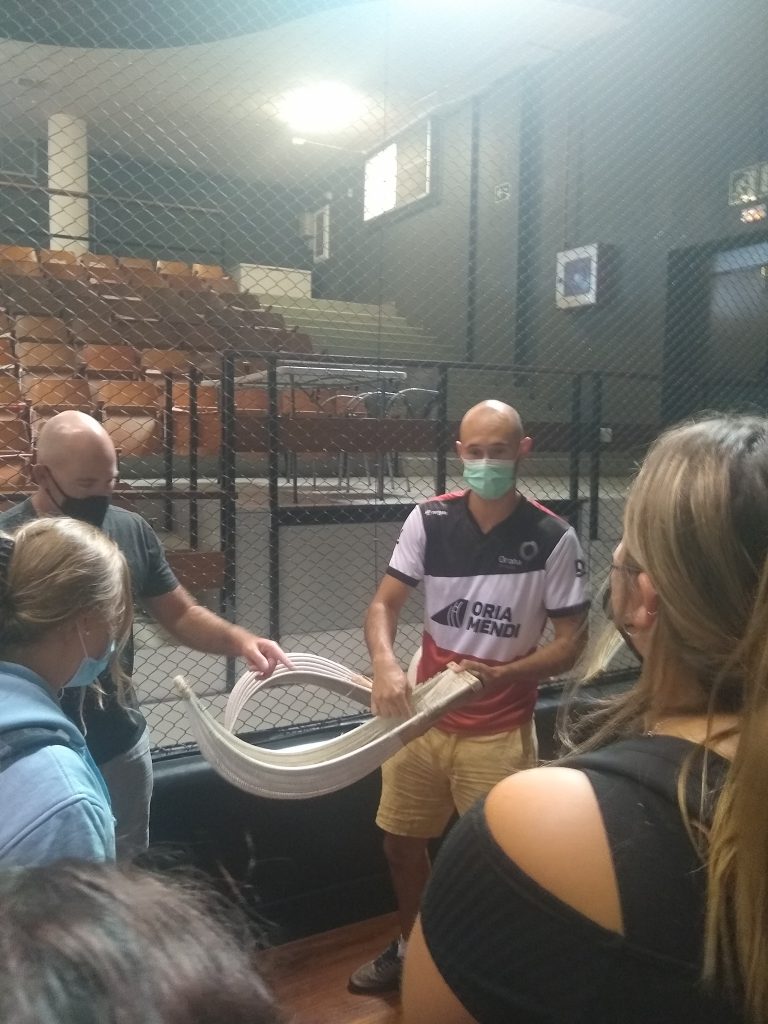
I believe that the sport of pelota is emblematic of experience in San Sebastian. Just as with pelota, before taking this class I had no knowledge of San Sebastian or Basque culture. However after just three weeks in the wonderful city of San Sebastian I question how I could have gone my entire life without knowledge of this place or Basque culture.
Although Pelota is a big part of Basque culture there is so much more to it that I was lucky enough to learn about during my three weeks in San Sebastian.
When not playing pelota, the Basques have a much more laid back lifestyle than I am used to in Massachusetts. This is especially evident in the restaurants and bars of San Sebastian in which it wasn’t uncommon to spend upwards of two hours at a restaurant. While on vacation, this kind of laid back lifestyle is a nice change of pace from the norm.
This laidback lifestyle was more evident during what felt like the endless summer days of our three weeks in Spain. The sun, which felt like it never set, allowed us to jam pack our days with activities, from Spanish class in the morning, to class with Julian in the afternoon, to exploring the city’s many restaurants bars and beaches at night.
In accordance with the Basque culture, I turned this blog in fashionably late. I am currently writing this from my house in Massachusetts. It’s 8 o-clock outside and is currently pitch black outside my window. So far, in my one day since being in San-Sebastian, this has been the biggest culture shock I have experienced. I got very used to the sun setting well after 9:30 and it never being truly dark out
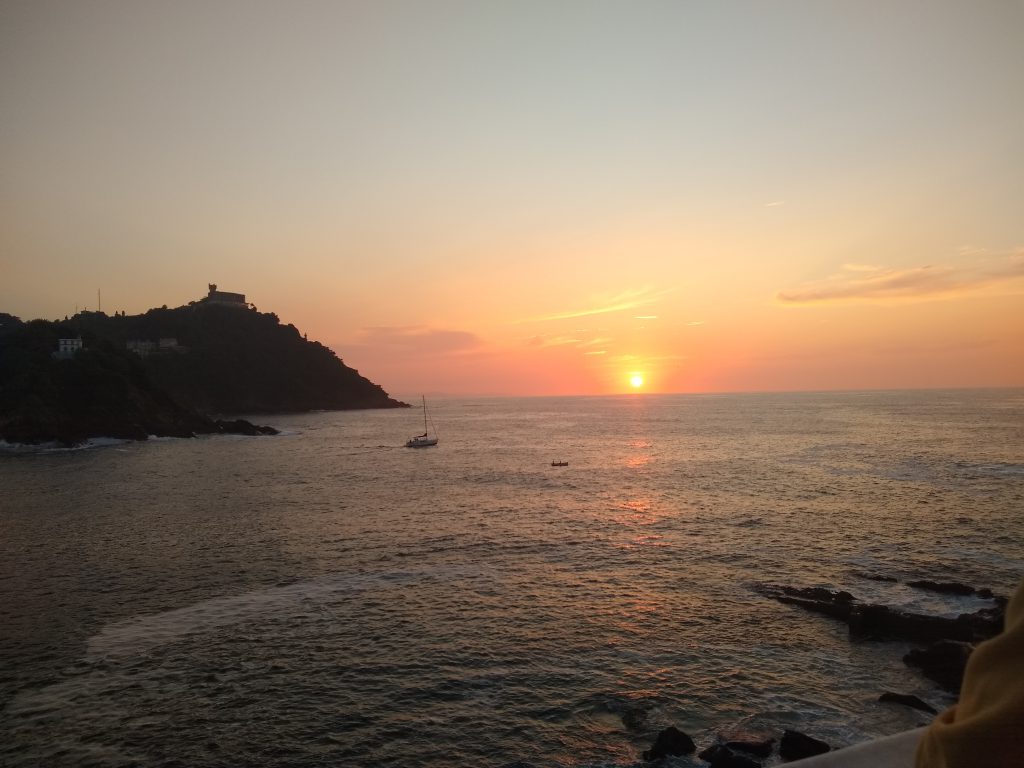
I believe that Americans can learn a lot from Basque culture. Whether that be learning to be more laid back or incorporating new sports such as pelota into the national consciousness.
